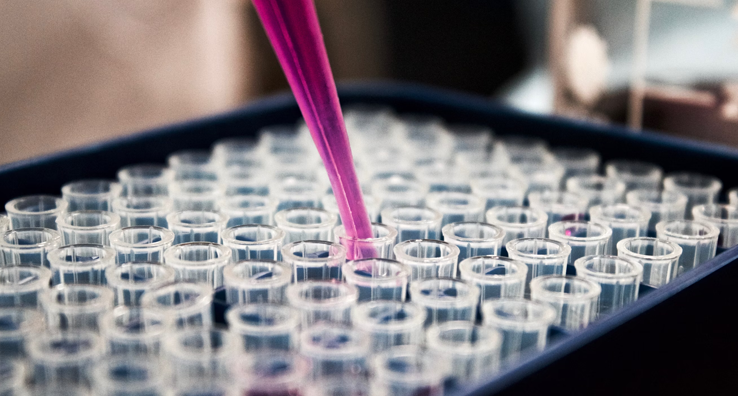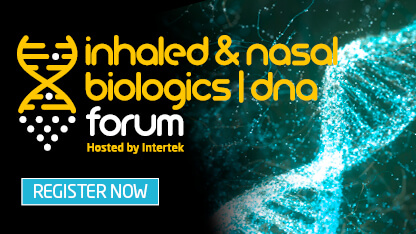Extractables and leachables studies of plastic bioprocessing single-use systems (SUS) that help you to assess and control risks due to leachables from SUS components.
Risk-based extractables and leachables (E&L) studies of plastic single-use bioprocessing systems help to ensure safe, effective, and high-quality biopharmaceutical drug or vaccines manufacturing. There are a range of guidance documents that are relevant including the USP <665>/<1665>, Biophorum Operations Group and others. Navigating this guidance can be challenging, and suitable extractables and leachables programs are complex.
USP <665> and USP <1665>
The updated USP <665> and <1665> chapters cover single-use plastic components and systems used to manufacture pharmaceutical drug products and biopharmaceuticals. The USP 665 chapter defines as an enforceable requirement, whereas chapter USP <1665> contains guidance on risk assessment approaches and how to implement this chapter beginning with an initial assessment and a risk assessment. This risk assessment considers the available data and interaction risk of all materials involved with use of a Risk Assessment Matrix. Both USP <665> and <1665> chapters were officially approved in 2024 but will become effective from 2026. Whilst this does give stakeholder some time to prepare, it is important to take steps to implement these chapters now in order to be ready for this deadline.
BPOG Guidance for Evaluating Extractables and Leachables
The BioPhorum Operations Group (BPOG) have published two key guidance documents to help control potential risks associated with leachable impurities released by single use components. These BPOG documents include “Best Practices Guide for Evaluating Leachables Risk from Polymeric Single-Use Systems Used in Biopharmaceutical Manufacturing” and “Standardized Extractables Testing Protocol for Single-Use Systems in Biomanufacturing” and are widely used by bioprocessing and biopharmaceutical supply companies as best practice for SUS component extractables and leachables testing. Note, that whilst the BPOG protocol/BioPhorum guidance references relevant USP chapters and is viewed as best practice by many industry stakeholders, these are not formal regulatory documents.
Other important guidance includes Part 8.131 of GMP Annex I, PQRI for PODPs (2013), CDER from the FDA (2008), EMA and biocompatibility testing according to ISO 10993-18. This range of guidance should be applied as appropriate to the application and region of interest and study design should be scientifically justified.
Evaluation of Extractables from Bioprocessing Bags, Tubing, Valves and more
The application of single-use technologies and single-use components in the bioprocessing industry are increasing due to the efficiencies these systems bring. Bioprocessing materials include disposable media bags, tubing, connectors, sampling systems, elastomer parts (e.g., gaskets, O-rings), buffer containers, mixing systems, valves, sensors, bioreactors, membrane adsorbers, chromatography columns and perfusion and tangential flow filtration cassettes.
All of these may potentially come into contact with the biopharmaceutical product or process fluids. These SUS components are constantly being redesigned and improved, enabling more effective (fewer contamination risks, lower cleaning, and validation costs), and more compliant products with improved extractables/leachables profiles. Consequently, it is important to demonstrate continued regulatory compliance and compatibility with the production process/product to ensure safe, effective, and high-quality final biologic drug products or vaccines and extractables testing is a key element of SUS equipment design.
Science-led E&L Studies for Single-use Systems
These studies can be challenging, however, our extractables and leachables scientists based at our GMP laboratory in Reinach, Switzerland, use stepwise risk-based approach that meets regulatory expectations and enables robust data generation. Typically, we design an extractables and leachables study and method set-up to include a comprehensive analysis of the extractables and leachables including both volatile and non-volatile compounds. The extractables study would involve multiple techniques (e.g. (HS)-GC-MS, GC-MS, LC-MS or ICP-MS) where the Analytical Evaluation Threshold analysis (AET) and study design would follow recommended industry guidelines such as the USP <665>/USP <1665> or BioPhorum Best Practices Guide for Extractables Testing of Polymeric Single-Use Components used in Biopharmaceutical Manufacturing (BPOG protocol, May 2020).
Analytical Study Design and Technologies
Extractions with both organic and aqueous solvent and formulation/placebo are required to establish the “picture” under the worst-case conditions. Typically, aggressive conditions are applied to extractables studies such aselevated temperatures, solvents, and exposure time, in order to force potential extractables to migrate into the solvent. Analytical screening methods to characterise extractables should be comprehensive and cover volatiles, semi-volatiles & non-volatiles organic compounds and elemental analysis for inorganic compounds such as metal impurities. Through our stepwise approach to extractable/leachable studies, the data we generate supports the assessment of potential leachables present in the final product and help you to determine whether leachable impurities are present at levels that cause safety concerns.
Specialist Extractables and Leachables Expertise for Bioprocessing Single-use Systems
Our experts have over 25 years’ experience in specialised analytical and toxicology assessment for extractables and leachables across many product types such as pre-filled syringes, large volume parenteral products, transdermal delivery, orally inhaled and nasal drug products (OINDP), single use and disposable medical equipment, printed packaging, and bioprocessing equipment.
Our knowledge of polymer, plastic, and packaging materials, allows us to identify components from the most complex polymer formulation including adhesives, additives and stabilizer ingredients and their degradation products. Our consultants provide a first-class evaluation and assessment of existing extractables and leachables study data gaps, and through strategic screening or quantitative studies, we offer the right study for your product. Comprehensive evaluation and safety assessment review of laboratory E/L study data is performed by our in-house toxicologist consultants.
We apply our in-depth knowledge about potential contamination associated with medical device materials to evaluate, accurately, the risk of leachables for even the most complex of medical devices and combination products. Our team design and deliver robust analytical programs to support your data requirements for subsequent toxicological risk assessments or for submissions to the regulatory authorities. Expertise includes:
- Analytical method development and validation
- Measurement of extractable and leachable materials from medical devices
- Extractable and leachables for pharmaceutical container closure systems
- BPOG extractables and leachables studies supporting bioprocessing
- In-use simulation studies
- Assessment of processing residuals
- ISO 10993-18 materials characterisation
- Batch-to-batch verification of processing materials
- Particulate testing and analysis and particulate release studies
- Plastics and container testing: USP <661>, USP <232>
- Stability and ageing studies with controlled ICH storage conditions
Total Quality Assurance
Through our Total Quality Assurance expertise, the robust data we generate, can help identify extractable species and reduce risks associated with selection of single-use bag-tubing-combinations for your production line. With increasing innovation and application of single-use systems it is important, more than ever, to ensure continued regulatory compliance and compatibility of the production process/product to enable approvals of single-use manufactured commercial products that are safe, effective and of high quality.
Pharmaceutical News & Events
- PRESS RELEASE: Lab expansion to enhance capabilities in inhaled biologics drug development
- PRESS RELEASE: Intertek partners with CrystecPharma to advance formulation science and accelerate development for dry powder inhalers
- NEW! Blog: Optimising Quality in Pharma Supply Chains
- Determination of Particles in Pharmaceuticals - Article
- Discover our Audit Live Tool for direct access to our scheduled audits
- Extractables/Leachables Lab Tour - Request access
- Medical Device Extractables & Leachables Studies
- Glycosylation Analytical Approaches for Antibody Therapeutics
- Rapid Determination of Low/Trace Level Benzene in Pharmaceutical Excipients and Finished Products


